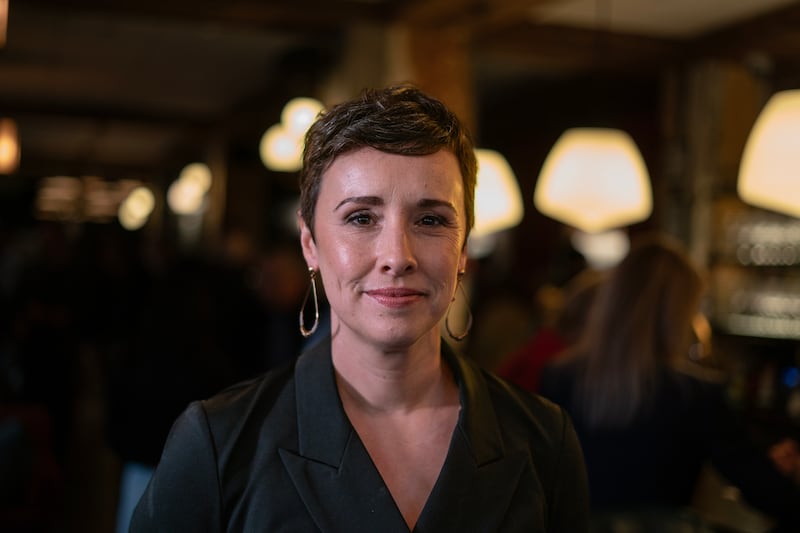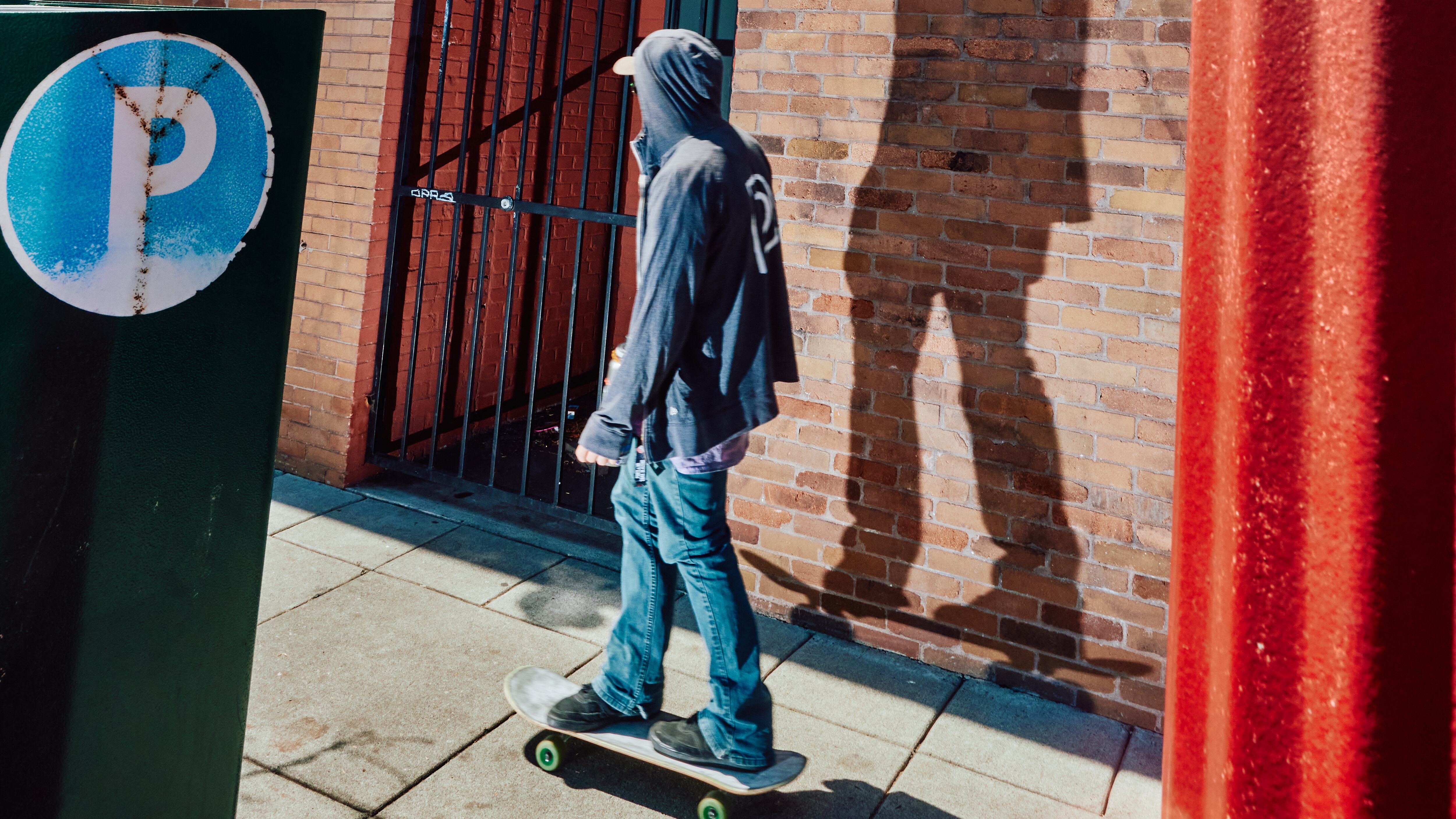Old Town makes the nightly news a lot—and rarely in ways that flatter the neighborhood.
Consider the past two weeks. A man armed with a handgun hijacked a TriMet bus on Northwest Glisan Street as passengers fled, then barricaded himself inside for a three-hour standoff with police. One week later, police had a similar standoff on Northwest Naito Parkway with a man who had been threatening people with a machete.
The people who live, run businesses, and serve hot meals to the homeless in the neighborhood between downtown and the Pearl District would like to be known for something other than sensational headlines. But the question of what transformation looks like has sparked conflict of its own.
The neighborhood contains a delicate balance of social service providers and soup kitchens, private businesses like bars and hotels, and cultural institutions and museums, like the Lan Su Chinese Garden, the Japanese American Museum of Oregon and the Portland Chinatown Museum.
“It’s a complex neighborhood. We have a long history of different cultures and, quite frankly, cultures that are in conflict,” says Jessie Burke, owner of The Society Hotel and board chair of the Old Town Community Association. “If anyone wants to come down here and be part of some positive change, we should be pumped. Because we don’t have a lot of people that are interested in that.”
In recent years, as Old Town and Chinatown have borne the brunt of Portland’s overlapping crises of homelessness, drug abuse and mental illness, groups have sometimes butted heads over who gets to make decisions about transforming the neighborhood’s image and who gets access to the checkbooks that could fund that revival.
At a Feb. 5 meeting of the Old Town Community Association, where many neighborhood improvement decisions are made, a modest idea to build a skatepark on a troubled block blew up the meeting. At the center of the fight? Burke.
The acerbity exposed long-simmering tensions over who gets to write Old Town’s next chapter.
“Progress must honor the neighborhood’s legacy and be guided by transparency, meaningful engagement, and best practices in decision-making,” leaders from the three cultural institutions in Old Town—the Lan Su Chinese Garden, the Portland Chinatown Museum, and the Japanese American Museum of Oregon—said in a joint statement. “The strongest outcomes happen when residents, businesses, cultural organizations, and developers all have a voice.”
In July of last year, a man apparently in a mental health crisis chucked an ax through the front window of the Lan Su Chinese Garden’s tea shop in Old Town, shattering the glass and sending a ripple of fright through the neighborhood. Portland City Hall agreed to build a fence around the neighboring block, at a cost of $12,000, hoping it would prevent similar violent incidents from occurring—the two blocks had become notorious for mischief and violence.
At the time, Mayor Ted Wheeler, who set up the Public Environment Management Office in the wake of the pandemic to clean up and reactivate dismal blocks across the city, said he was intent on making Old Town a safer place.
But now, what to do with Block 25, as it’s called, is the subject of dispute among cultural institutions, business owners and social service providers in Old Town. Or, more precisely, who gets to choose what happens in that block is in dispute.
The idea that so inflamed the Feb. 5 general meeting of the Old Town Community Association, and a subsequent board meeting, was benign: a skatepark with not much planned beyond a half-pipe to be placed in Block 25. Perhaps, went the thinking, such a park would deter criminal activity.
The Public Environment Management Office worked on the idea, primarily with Burke, the outspoken board chair of the OTCA and a recent candidate for Multnomah County commissioner. PEMO director Anne Hill had seen a similar pop-up skatepark on the outskirts of Portland State University’s campus work wonders.
Prosper Portland, the city’s economic development agency that owns Block 25, issued OTCA a permit, signed by Burke, to erect a skatepark on a quarter of the block. PEMO also spent $28,000 on paving.
But when members of the OTCA board learned of the permit earlier this year, feathers were ruffled. At the Feb. 5 meeting of the association, members questioned how Burke obtained the permit without a vote of the board, and pondered the risks of taking on such a liability. (According to a copy of the permit, issued Oct. 4, OTCA would assume liability for what happens on that block.)

Burke, always outspoken, has become a higher-profile figure in Portland in recent years.
She co-owns the boutique Society Hotel in Old Town and formerly owned a popular cafe in North Portland. She finished third in her May 2024 primary race for county commissioner. Though Burke did not make the runoff, she ran on a platform of cleaning up the city and ensuring that nonprofits that contract with the county on homelessness are more accountable for their spending of taxpayer dollars.
Burke often retold horror stories from Old Town on the campaign trail, and she was quick to describe to the press—both local and national—how scary the neighborhood was during the pandemic years. (“Some people respond to carrots, and some respond to sticks,” she told The New York Times in 2023. “But we have used carrots here.”)
To be sure, Burke has been dogged about improving the neighborhood. She’s been crucial in securing bits of funding here and there from the city to do things like erect gates in front of businesses, place covers over tree wells, and install lanterns and lights in 2023. But Burke and her husband, Jonathan Cohen, who serves as OTCA treasurer, have become polarizing figures to some in the neighborhood.
On Feb. 5, tensions rose as Burke defended her decision to go after the skatepark permit and said people who were fighting progress in the neighborhood should feel ashamed. At one point, she specifically called out the cultural institutions in Old Town for questioning the permit.
“The fact that when we have a little bit of good, we find opportunity to fight or attack each other is really disappointing to me,” Burke said. “Shame on us if we can’t find the good. I’ve been hearing a lot about losing the culture, of not involving the right people. I’ve heard that some of the cultural institutions feel like they are being left behind. Change does not have to mean being left behind.”
Burke continued: “I had someone say to me I’m not Chinese enough to have a say. I’ll take those hits, but I want everyone to know what that means. That means we’re talking about blood quantum. To say, how much is enough? And that’s not right.”
As might be expected, the remarks drew some discussion—about 30 minutes’ worth.
Burke’s husband, OTCA treasurer Cohen, visibly upset, said he was sick of people complaining about well-intentioned efforts.
“I’ve been doing a ton of work to make this neighborhood over the last several years. And all I’ve gotten for it is multiple write-ups in the paper about how I’m somehow misusing funds, things weren’t fair,” Cohen said, at one point taking aim at Ryan Hashagan, who runs a nonprofit partnering with the city to build a skatepark under the Steel Bridge. “I don’t understand why there’s so much complaining from people who refuse to step up and join this board.”
(Last year, City Commissioner Dan Ryan announced $15 million in one-time city money for the Steel Bridge project.)
Cohen accused Hashagan of being the “primary agitator” badmouthing the Block 25 skatepark.
Hashagan briefly defended himself before Burke abruptly adjourned the general meeting and moved into a board session. That session did not go much more smoothly.
Two board members—Dixie Tavern owner Dan Lenzen and Blanchet House executive director Scott Kerman—raised questions about the skatepark permit. “We need as a board to decide,” Kerman said, “do we even want to hold this permit?” (Lenzen later said he thought the board should accept the permit.)
But it was Elizabeth Nye, executive director of the Lan Su Chinese Garden, who addressed the tension directly. She said the issue she and others had was about “what power is authorized to different people of OTCA to take certain actions” on behalf of the neighborhood.
“Jessie, I hear you a million times talk about we’re all in the same boat, we all gotta be rowing together. And I want to believe that,” Nye said. “But when there’s this amount of discussion and dissent and concern, it tells me that not everybody has gotten in the boat yet and we haven’t done our work to bring them along.”
Burke responded: “Luckily, I was a professional athlete so I take that feedback really well.” She said “crazy things” were happening around the skatepark permit. “Prosper [Portland] is angry. The press has been called, filing complaints against different people in the room. There’s a lot of crazy things. People are coming at me, people are coming at Jonathan.”
(PEMO director Hill says she had conversations about Block 25 and how to improve it with five of the association’s eight board members, though members at the Feb. 5 meeting said they were unaware until recently that the permit for a skatepark had been granted.)
Board members ultimately decided that the permit Burke received was null and void, and that the board would have to take a vote on whether to accept the skatepark permit in March.
Burke, in a phone call with WW, says she “understands where everyone’s coming from.”
The executive directors of the cultural institutions—Anna Truxes of the Portland Chinatown Museum, Elizabeth Nye of Lan Su, and Hanako Wakatsuki-Chong of the Japanese American Museum of Oregon, say it’s “simply not true” that the cultural institutions in Old Town are resistant to progress.
“The cultural organizations have numerous projects for the future and are open to hearing about how we can ensure Old Town has a vibrant future.”

